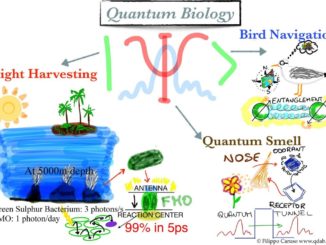
I am a preacher of logic and rationality. Metropolis defies logic. This Fritz Lanz film is the definition of absurdity, a characteristic I normally dislike. It offers a half-hearted resolution to the maxim ‘the heart is the mediator between the mind and the hand’, elaborating it wonkily, like a student science project that uses quantum physics and shit to make candyfloss for extra marks (students of science, forgive me for my ignorance here, as I have no clue about quantum physics. Its one word I keep hearing often on the web, though!).
The ‘experiment’ ultimately turns disappointing because the process is unnecessarily and inexplicably complicated. It ends up looking absurd, a characteristic, I repeat, I normally denounce. The major complaint I had with Fritz Lanz’s 1927 science-fiction epic Metropolis, considered by contemporary critics as one of the most important films ever made, is quite similar to sci-fi author H.G. Wells’ own reservations about the movie. I agree with H.G. Wells when he attacks the film for favoring message over logic, although I wouldn’t be as vehemently hostile as he is (his review basically rips apart the film to shreds, and not just through any shredder but one that shreds it to nano-bits). There are two things I fail to understand:
1) The film talks about workers living in the underworld who toil for a reasonable ten hours at a factory, controlled by a magnate by the name of Joh Fredersen. A whistle billowing from a pipe-like machine marks the end of their shift. The only sign of their oppression is their style of walking, a rhymic march with slightly stooped backs. An elevator takes the workers to their homes, which aren’t all that shabby. To me they looked like card-board boxes with cut-outs for windows, but they appeared quite roomy, at least from the outside.
One day, there’s an accident at the workplace. Quite a number perish, and the film’s protagonist Fred, Joh Fredersen’s son, bears witness to the unfortunate sight. He informs his father, who until then is clueless about the mishap. There is nothing suspect about this accident. Accidents happen, shit happens. Frankly, I wanted to ask those workers ‘What are you fighting for?!’ because there seemed no strong motive behind their rebellion. It’s also funny that we know absolutely ‘nichts’ (nothing) about what those machines produce? Because, you know, they are supposed to ‘run the whole damn place’ and that’s why Joh is a monopolist turned autocrat. They run a city teeming with motorcars and planes, so these machines make automobiles and aircraft?
When there is a breakdown later in the film, the whole city comes to a standstill. There is no power, so are we to assume these machines generate power? And what do the civilians living in between the underworld of workers and the ‘Club of the Sons’ (where the rich, including Joh and Fred, reside) do for a living? And why is it a compulsion that if a person is fired by Joh, he goes straight to the underworld, as shown in the film.
2) Fred is smitten by Maria, the messenger of peace and equality among the workers of the underworld, and touched by the plight of the poor workers’ children whom she brings along to the Club of the Sons one day to damn the wealthy (albeit tactfully) for the excesses and negligence. He follows her to the underworld, is haunted by the condition of the workers and decides to support Maria’s cause for uplifting their living standards. He becomes a worker himself, and a mediator between the two world.
On hearing a word about Maria’s secret meeting with the workers, Fred’s father schemes with a mad scientist named Rotwang by creating a robotic clone of Maria using the robot invented by Rowtang which he originally built to replace his lost love Hel, the dead wife of Joh. Maria is kidnapped, bound in Rowtang’s laboratory to clone her face onto the robot’s, and then kept in captivity at Rowtang’s isolated home. The clone Maria is instructed to instigate workers to riot. She also sets tongues waggling in the world above with her seductive performances. In one dance, she pops out of an oval-shaped object, which I assume was a source of inspiration for Lady Gaga’s bizarre entry at 2011 Grammy awards. Also for Madonna’s Super Bowl performance, where her head-gear was definitely inspired by Maria’s. I wonder which diva was inspired by the good Maria? Maybe Janelle Monae, but she too became channeled as a robot in her wonderful album ArchAndroid. Okay, I digress too much.
The work force, incited by evil Maria, revolt against Joh’s regime and proceed to dismantle the heart machine, which in turn results in a deluge in the underworld. The machines too are damaged extensively in the process. Now, why in the name of Metropolis would Joh, the creator of Metropolis, destroy his own city? Of course he intended to subdue these workers by force at some point but perhaps he was too late. Way too late. Sergei Eisenstein had an entire army take quick action against revolting civilians in Battleship Potemkin. Mr. Joh simply waits.
The score by Gottfried Huppertz isn’t distinctive either. I bet some of Janelle Monae’s Metropolis inspired musical compositions, especially Suite iii Overture, would’ve done magic to some scenes in this film. The Gottfried Huppertz score and 119 min runtime indicate I have the 2002 DVD edition of Metropolis. There is a 2010 restored version with 25 minutes of additional footage. Would I buy it as a lover of films? Maybe. And as a preacher of rationality? Nien.
Proudly WWW.PONIREVO.COM



